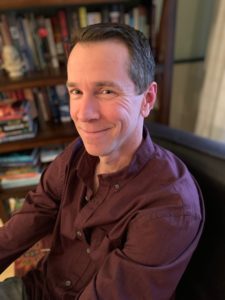 While I am a sucker for fairytales and magic, one area of writing that I persistently search for is dystopian not-so-distant futuristic novels. Something plausible, and terrifying, that engulfs the reader in the imaginative, but hope-it-won’t-happen world characters live in.
While I am a sucker for fairytales and magic, one area of writing that I persistently search for is dystopian not-so-distant futuristic novels. Something plausible, and terrifying, that engulfs the reader in the imaginative, but hope-it-won’t-happen world characters live in.
What makes this genre so distinct from the rest of fiction is its possibility. Take The Handmaid’s Tale””Margaret Attwood created a world where everything was derived from something that happened in history. It is unfathomable to consider the world she created could become possible, but isn’t that the draw? Margaret dramatized real-world situations to tell her story. But the scariest part of the book is that much of the events have happened, or could happen in the near future. To believe something could become reality makes the story that much more interesting. It is fortune telling through a character’s lens.
Augland is such a novel. It takes readers through a not-so-distant future if greed and corporate and political power corruption became too powerful. It would take a domino effect of situations: a Civil War, a corporate giant, and a compelling AI and dream-like consumer product, to happen, but the truth is, its plausible.
The novel asks the question, if corporations genuinely wanted to gain complete control, what would it look like? Major conglomerates gain a monopoly on the corporate market, giant corporations become an essential part of our lives, and companies gain enough power to start a war and take over the government.
Augland expands the current corporate and government dynamic and exaggerates the perimeters of a world that would have the working class “employed” in exchange for mere survival within the corporation’s walls.
This dystopian world is not all bad, however. Many want to create a society that benefits the masses. This story shows what greed and power can do in the hands of corporations and AI technology, but it also shows us the damage that can be done when people rebel.
Coming December 6th! Augland, a dystopian science fiction novel that discusses the geopolitical climate of a futuristic corporate takeover. Ashton, an unknowing heroine, rallies against the corporate grain in a theme-park would full of Suits to protect those she cares about””the Suit-less.
 Erin Carrougher lives in the Seattle area and was more than suited to write about the region as the location of her dystopian novel. She has a passion for storytelling and loves to envision worlds other than our own. Carrougher minored in Creative Writing and currently works as a Sales Manager, and enjoys cooking and the outdoors. Augland is Carrougher’s first novel.
Erin Carrougher lives in the Seattle area and was more than suited to write about the region as the location of her dystopian novel. She has a passion for storytelling and loves to envision worlds other than our own. Carrougher minored in Creative Writing and currently works as a Sales Manager, and enjoys cooking and the outdoors. Augland is Carrougher’s first novel.
Connect with Carrougher at erincarrougher.com, and on Facebook, LinkedIn, and Instagram.
Augland is available for pre-order from Amazon and Barnes & Noble.






 Whenever I ask the question “How shall I live?” I always look to literature for the answer. But this time the answer came in a dream.
Whenever I ask the question “How shall I live?” I always look to literature for the answer. But this time the answer came in a dream.



